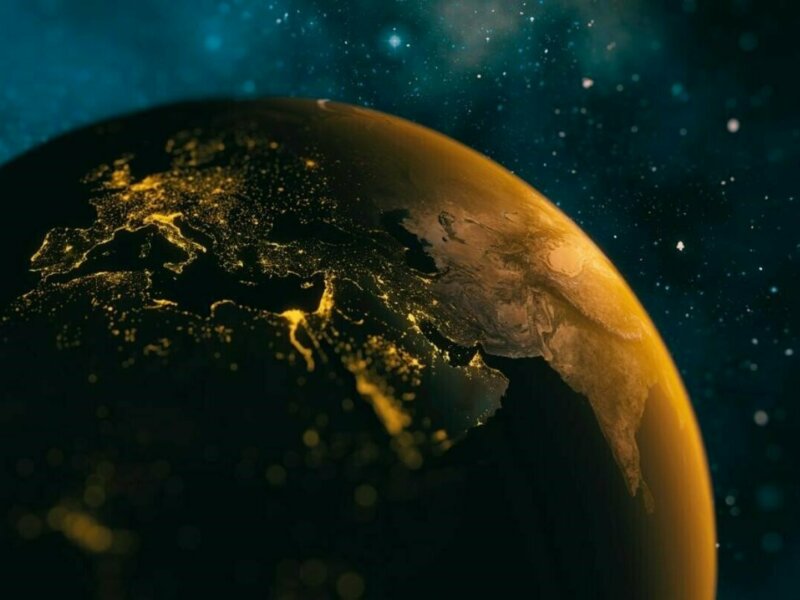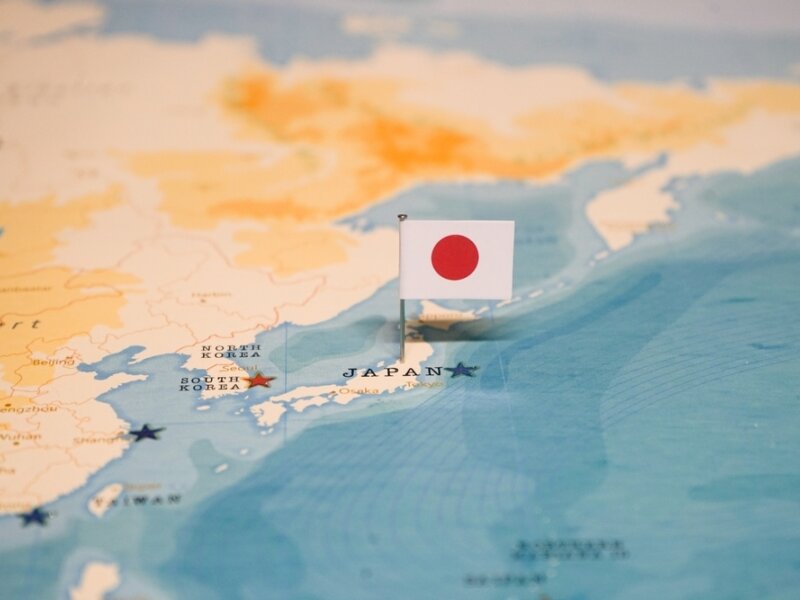Italy and Morocco: A strategic partnership for the broader Mediterranean region and Africa
Notes from Ambassador Armando Barucco on the relations between Italy and the Kingdom of Morocco, and on the cooperation agreement between the Med-Or Foundation, Rome’s Luiss University and Mohammed VI University in Rabat.

Straddling two continents and two seas, throughout its millennial history the Kingdom of Morocco has been a crossroad of empires, trade and cultural exchanges. Here, Phoenician trade posts evolved into the large cities of the Mauri people and, later, of the Roman province of Mauretania Tingitana. The ruins of the latter saw the passage of Arab Empires and of the Arab-Berber dynasties, whose continuous rule throughout the centuries – broken only by the French Protectorate period between 1912 until 1956 – has made Morocco one of the oldest countries in the world. Embodying a synthesis between Islam and the institution of the monarchy, the King of Morocco holds the titles of Head of State and of Amir al-Mouminine, which means: 'Guide of the Believers and Descendant of the Prophet’. This is crucial to understand the characteristics of today’s Morocco, stretched between the millenary tradition of a particularly moderate version of the Islamic Maliki doctrine and a modernity that combines relations with Europe with deep, centuries-old, African roots.
The country that, in the XVI century, conquered the Songhai Empire and extended its rule to Malian territories is today one of the few in the African continent that proudly consider health cooperation towards Sub-Saharan Africa a strategic axis of its foreign policy.
This is part of a precise vision of Morocco, a country which sees itself as a bridge towards the opportunities that the African continent, unified by the African Continental Free Trade Area (AfCFTA), can offer both in terms of connections and infrastructure. Morocco’s African soft-power is expressed through South-South cooperation, and through the ever-deeper integration of its banking, insurance, industrial and telecommunication system in neighbouring countries – as well as its unique cultural and religious tradition.
Mohammed VI’s reign is coherent with the country’s historical evolution, based on a positive interpretation of the tension between modernity and tradition, which has led to a series of social changes, and eventually to the 2011 constitutional reform.
The role of the king, who embodies the spirit of national unity and acts as a mediator among state institutions, has been crucial in responding to two of the greatest challenges of the last decades: the Arab springs and the health crisis. In both cases, a solid institutional apparatus has enabled Morocco to navigate smartly the social complexity at hand, confirming the country as an example of stability and tolerance. It is no coincidence that Morocco’s religious policy has been institutionalized under a coordination and orientation mechanism, chaired by the King, which is also in charge of training Moroccan and African ulemas.
The actions taken during the health emergency show the will of the Moroccan government to accelerate progress in two priority areas: expanding social protection and strengthening the national economy. This cutting-edge institutional effort, which is very similar to that underway in Italy, has enabled the country to undertake relevant economic measures and kick off a vaccination campaign through which over 20 million doses have been administered and almost 30 percent of the population has been completely vaccinated.
The 'New Model for Development', adopted in April 2021, is, in many ways, similar to Italy’s National Plan for Recovery and Resilience, and it aligns closely with priorities expressed by Italy and the EU: the environment, digitalisation, education, socio-economic resilience and social protection.
Moreover, Morocco continues to open up with confidence to international markets and partners, offering a uniquely stable environment and incentives and benefits to foreign companies planning to set up activities in the country. Initiatives carried out in the last 20 years – such as the construction of Tanger Med port, now the largest container port in the whole of the Mediterranean, or the creation of industrial parks focusing on the automotive and new technologies sectors – can now benefit from a renewed long-term perspective.
Additionally, the development of the energy sector is of great interest. The Moroccan national strategy aims to increase the production of renewable energy to over 50 percent of the national installed power. This includes plans for solar, hydro and wind energy and makes Morocco a key partner for the European 'Green Deal' and for de-carbonisation goals. This is an area of particular interest for the Italian industry. Enel Green Power has established operations in the country since 2016, with an 850-MW investment in four wind farms, while the ENI group has confirmed its commitment to the offshore exploration of the Atlantic area of Tarfaya.
Alongside the more ‘classic’ energy and gas and oil sectors, Morocco is now the new frontier of alternative fuels, such as green hydrogen and green ammonia for industrial use – and is very open to an increasingly strong and structured involvement of Italian companies.
Italy has been watching closely these developments and the role played by Morocco as an agent of stabilisation in key areas for economic development and security, such as the Mediterranean and the Sahel. The signing of the Joint Declaration on the Multi-dimensional Strategic Partnership – strongly advocated for by Ministers of foreign affairs Luigi Di Maio and Nasser Bourita – has dramatically improved the quality of the relations between the two countries. In the spirit of the 1991 Treaty of Friendship and Cooperation, this is paving the way for equal collaboration.
Some of the commitments taken include: political, diplomatic and intelligence cooperation; the management of regional and international challenges; the fight against international terrorism and crime; the consolidation of economic, trade and financial relations; the fight against irregular migration flows and human trafficking; and the strengthening of cultural and scientific cooperation.
In the past two years, these mutual commitments have been taking shape thanks to the continuous coordination and promotion work carried out by the Italian Embassy, consular network and Italian Trade Agency in Morocco.
This collaboration rests on solid bases. However, much more needs to be done to fully develop the potential of this bilateral partnership, as well as opportunities for Italian economic actors. As the Italian economic system is showing increasing interest in Morocco, creating a supporting infrastructure is a challenge which we will need to tackle with great dynamism. This means creating a real network of relations between the main economic operators – but not just that. We must not forget the richness of relations between the two countries that stems from personal relations and shared feelings, rooted in the experience of the Italian community in Morocco and of the Moroccan community in Italy. With half a million members, the latter is one of the largest non-European communities in the country, and the most successful in terms of economic integration, as testified by over 64,000 individual companies set up by Moroccan citizens.
It is against this backdrop that Italy has been recently promoting a series of initiatives including closer links between the Moroccan and Italian Manufacturers’ Associations and the growing cooperation between the Cassa Depositi e Prestiti, the most important Italian public sector financial Institution, and its Moroccan counterpart.
Education is another key element. The essence of foreign affairs lies in the relation you have with your fellow man. And the essence of any educational project is to enable students to see the world through the eyes of their fellow men and women. This is what the Jesuit order – which by no coincidence Pope Francis belongs to – has taught for centuries.
The strengthening of international exchanges between think tanks, universities and training institutions has a strategic value for the future of relations between Italy and Morocco – even more so considering that a growing number of Italian citizens have a Moroccan background and that more and more Moroccans are looking at Italy with sincere friendship and admiration, as demonstrated by the over 3,100 Moroccan students registered in Italian universities.
The fact that the Policy Center for the New South, one of the most important think tanks in the whole MENA area – and a long-standing partner in the MED-dialogues, the main world forum dedicated to the challenges of the broader Mediterranean area – is based in Morocco is not a coincidence. It is the result of the will of Moroccan elites to demonstrate, in high-level international fora, their locally-owned capacity to elaborate global trends.
The Med-Or Foundation’s efforts to establish a dialogue with them is part of the 'soft-power' policy that Italy is promoting in the Mediterranean region. In line with a long tradition of peer-to-peer dialogue, the relations with local civil society fostered by the Med-Or Foundation will contribute to creating a special bond between Italy and the present and future Moroccan elites.
In other words, Morocco is showing strong and deeply-rooted interest in Italy and in exchanging experiences and knowledge, and this requires a well-articulated response in all fields, from politics to academia, from the economy to science. These shared efforts aimed at creating more just, wealthy and sustainable societies will also lead to the development of a 'shared sentiment’. Among the many ongoing initiatives undertaken to this end, the one promoted by the Med-Or Foundation plays a very important role. It represents a concrete investment in trust, in the increasingly tight relations and in the growing cooperation between Morocco, Italy and Europe in the face of the challenges posed by the broader Mediterranean area and the post-Covid-19 world.
This is one of the reasons why I wish to thank Med-Or President Marco Minniti, Luiss University Rector Andrea Principe, Policy Center for the New South Director Dr. Karim El Aynaoui and all those who contributed, under the aegis and guidance of the Leonardo Med-Or Foundation, to the signing of the agreement between Mohammed VI and Luiss Universities. Since my first conversation with President Minniti, I have assured him this project would enjoy all possible support, as it marks the beginning of high-level, structured cooperation among three centers of excellence in under- and post-graduate education in Morocco and Italy.


